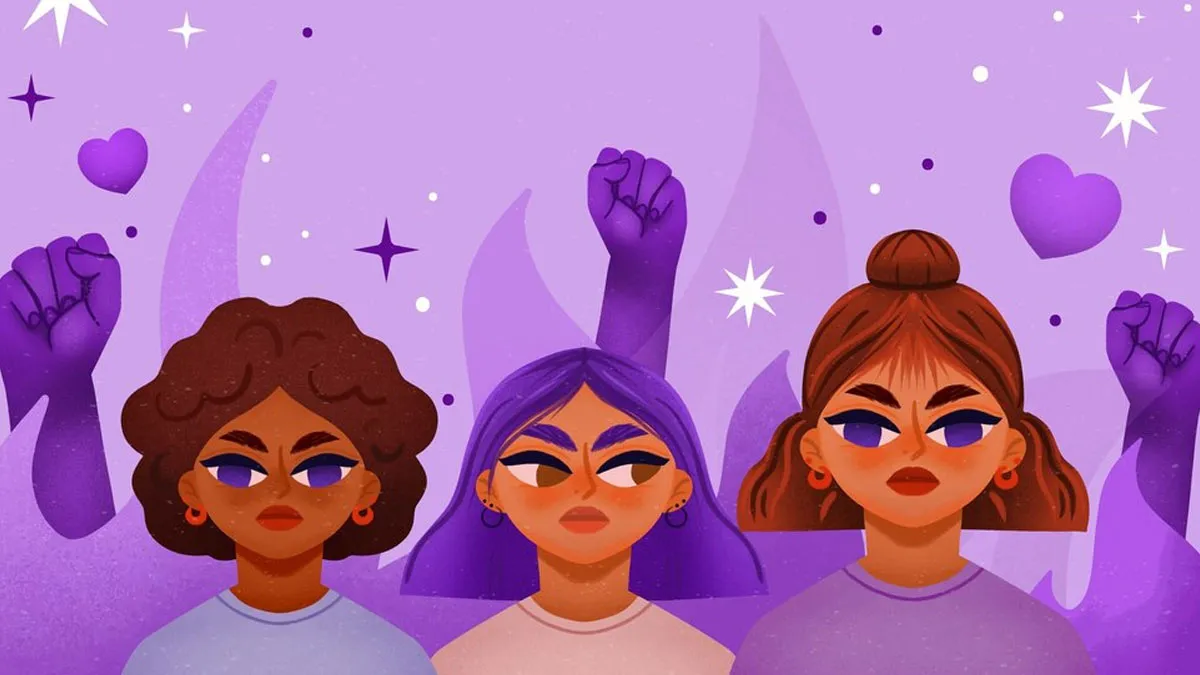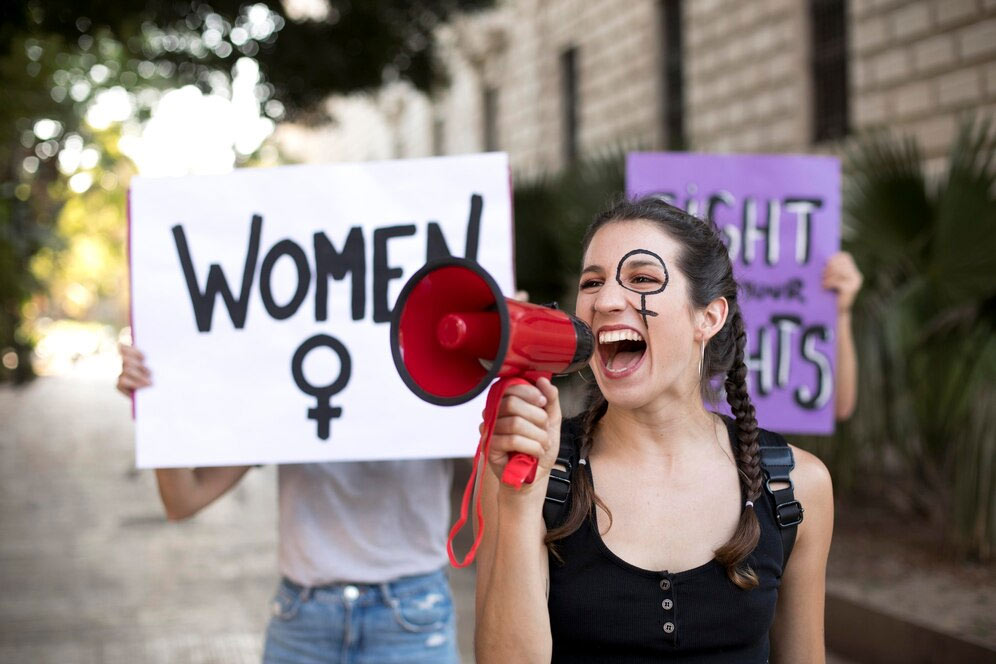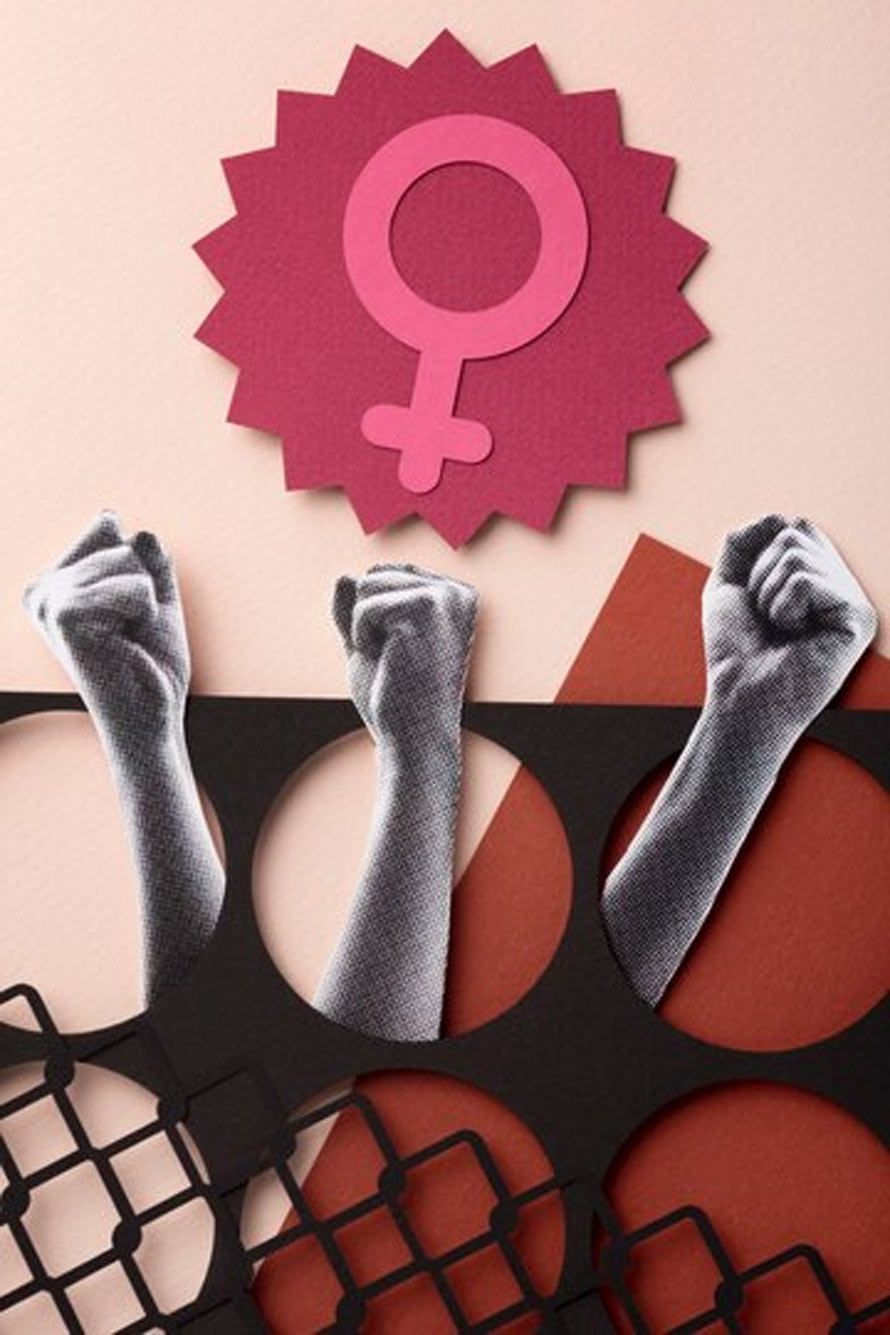
Words have a lot of power. They can lift you or bring you down. Some words motivate us, while others leave lasting wounds. We’re in the 21st century, yet some still think it’s okay to use harmful words when talking about women and girls, brushing them off as 'just jokes.' But these so-called jokes are far from harmless.
I was recently scrolling through Instagram when I came across a meme from the movie ‘Wanted,’ starring Salman Khan, Ayesha Takia, and Mahesh Manjrekar, who plays the villain in the film. In one of the scenes, Mahesh Manjrekar calls Ayesha Takia a "chalti phirti cocaine hai cocaine," a line that people have been using to make reels.
While many find it funny (I, for one, don’t), I noticed many people started incorporating this line into their everyday conversations as a joke. This got me thinking about how easily derogatory terms like these are used against women, often without a second thought. These words reduce women to stereotypes or worse. But it's time we stop letting these words slip through the cracks.
Below, we’ve listed 10 derogatory words commonly used against women (and trust us, this is just the tip of the iceberg, people have an uncanny ability to come up with more). These words should never be tolerated. We also spoke to Dr Arvind Otta, Senior Psychologist & Mental Health Activist, and Niharika Karanjawala-Misra, Principal Associate at Karanjawala & Co., to understand the psychological and legal impact of using such harmful terms.

Children and teenagers are in the crucial phase of developing their identity and building self-confidence. However, when younger girls are exposed to or called derogatory terms like ‘bimbo’ or ‘maal,’ it can significantly affect their self-esteem and shape their perception of reality. Dr Arvind Otta affirms that such terms carry harmful sexist connotations, reducing women to mere objects or commodities based on appearance.
For instance, when young girls are labelled ‘bimbo,’ it reinforces the harmful idea that their worth is only tied to their looks, leading to lasting trauma. This trauma manifests as poor body image, low self-worth, and the belief that they must conform to certain standards to be accepted.
Don't Miss: Beyond The Glitz And Glam: Unmasking Sexism In Bollywood's Biggest Hits
Dr Otta said, “Exposure to insults and derogatory language during childhood and adolescence can create long-term emotional scars. These can manifest as anxiety, low self-esteem, and fears of judgement, which negatively impact social interactions and academic progress. As they grow, many girls internalise this trauma, leading them to shy away from leadership roles or speaking up for fear of being labelled or judged.”
Language plays a significant role in shaping societal values. When derogatory language becomes normalised, it reinforces harmful gender stereotypes, teaching young girls that their value is based solely on their appearance, rather than their intelligence or skills. Psychologists emphasise the importance of sensitising people to the damaging messages conveyed through such language. They stress the need for fostering an environment where girls are valued for their abilities, not just their looks, to help them overcome the consequences of harmful speech and thrive in the future.
This made me reflect on whether India, being a democratic country with numerous laws in place, has any legal repercussions for using such derogatory terms against women. According to Niharika Karanjawala, “The use of derogatory language towards a woman, depending on the context and severity, can lead to various legal consequences. Section 79 of the BNS Act addresses the use of any act, word, sound, movement, or gesture intended to insult a woman’s modesty. This can result in a penalty of up to 3 years of imprisonment and a fine. Additionally, depending on the situation, these derogatory terms could also amount to verbal and emotional abuse in a domestic setting, sexual harassment, or even defamation.”
In some cases, derogatory terms can also be considered defamatory, especially when the statements are made publicly. If a defamatory statement harms the reputation of a woman, it can have serious legal consequences, highlighting the importance of responsible language in all spaces.

A woman wishing to take legal action for derogatory remarks made against her can contact the women’s cell of the police in her area to file a report. She can also call the police helpline number immediately to lodge a complaint or file a grievance through the National Commission for Women (NCW). These avenues ensure that her voice is heard, and appropriate legal action can be taken against the perpetrator.
Don't Miss: Nimrat Kaur and Abhishek Bachchan Caught in Rumour Mill: Why Are Women Always Blamed in Celebrity Gossip?
The language we use holds great significance. It shapes the values of our society and influences how we treat one another. Sexist language is deeply embedded in the patriarchal system and fuels a culture of misogyny that harms women. By tolerating such language, we communicate that it’s acceptable to degrade women.
Once we allow this, it’s not a stretch to see how harassment and verbal abuse can become normalised. So, the next time you see someone who claims their sexist remarks are 'just a joke,' teach them a lesson, let them know that it’s not just a joke, it’s harmful and unacceptable, and it has no place in our conversations.
Keep reading Herzindagi for more such stories.
Credits: Freepik
Also watch this video
Herzindagi video
Our aim is to provide accurate, safe and expert verified information through our articles and social media handles. The remedies, advice and tips mentioned here are for general information only. Please consult your expert before trying any kind of health, beauty, life hacks or astrology related tips. For any feedback or complaint, contact us at [email protected].